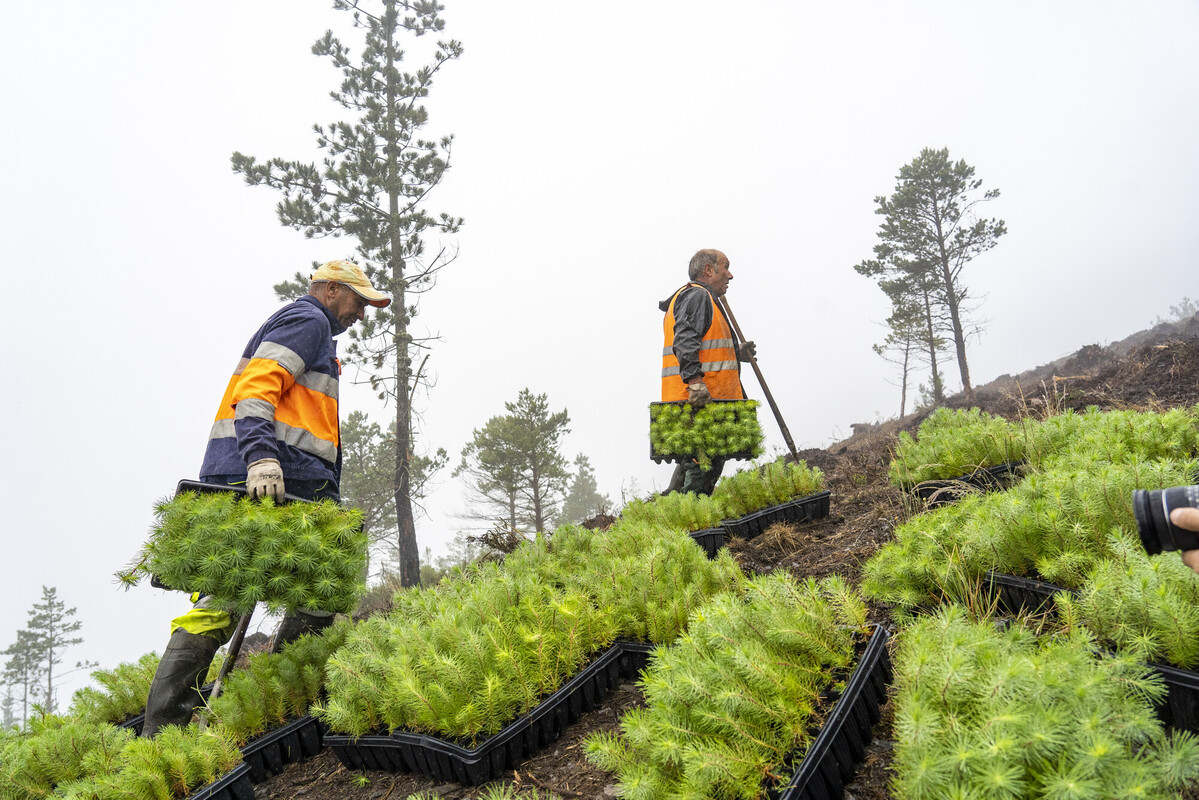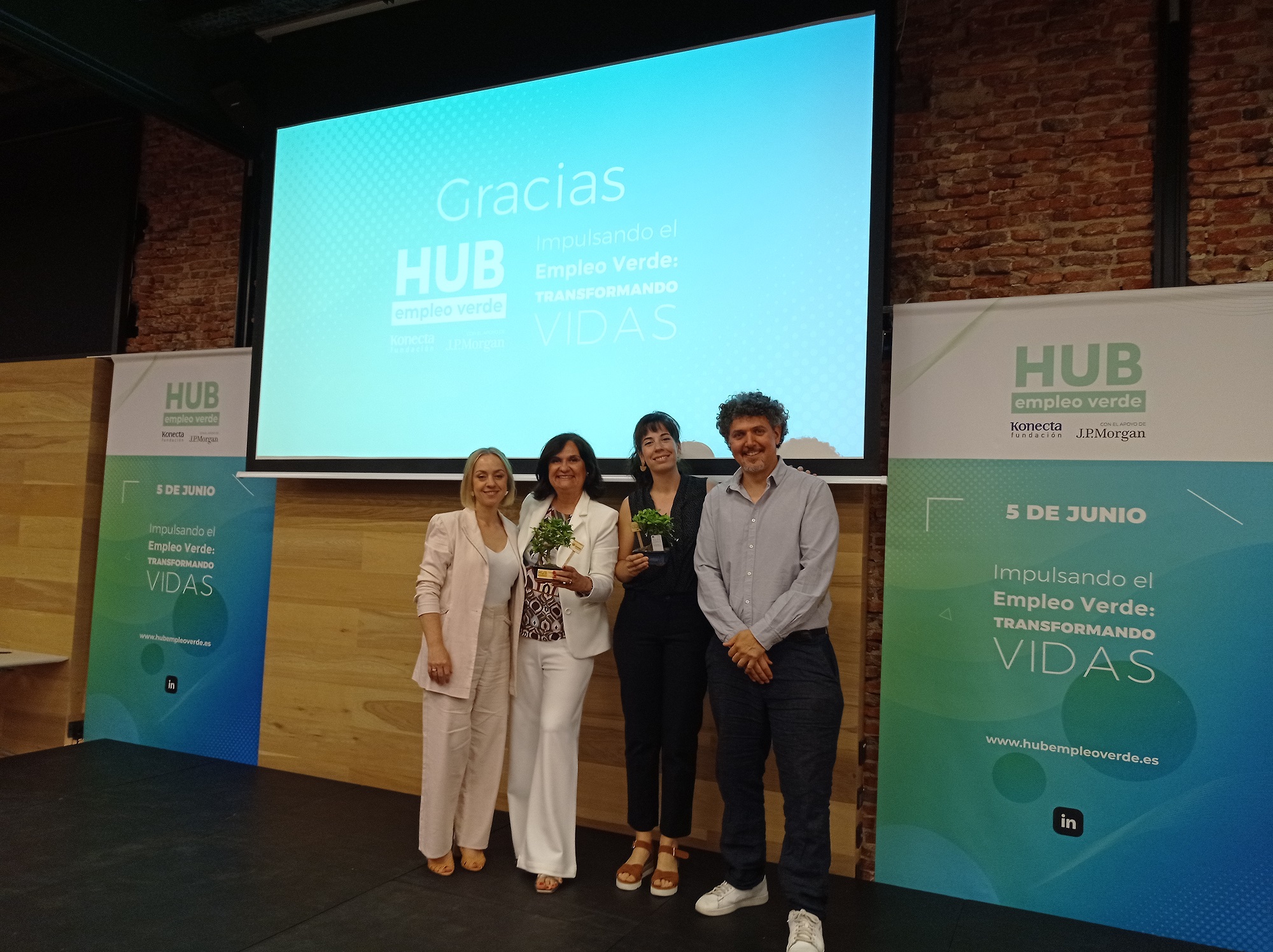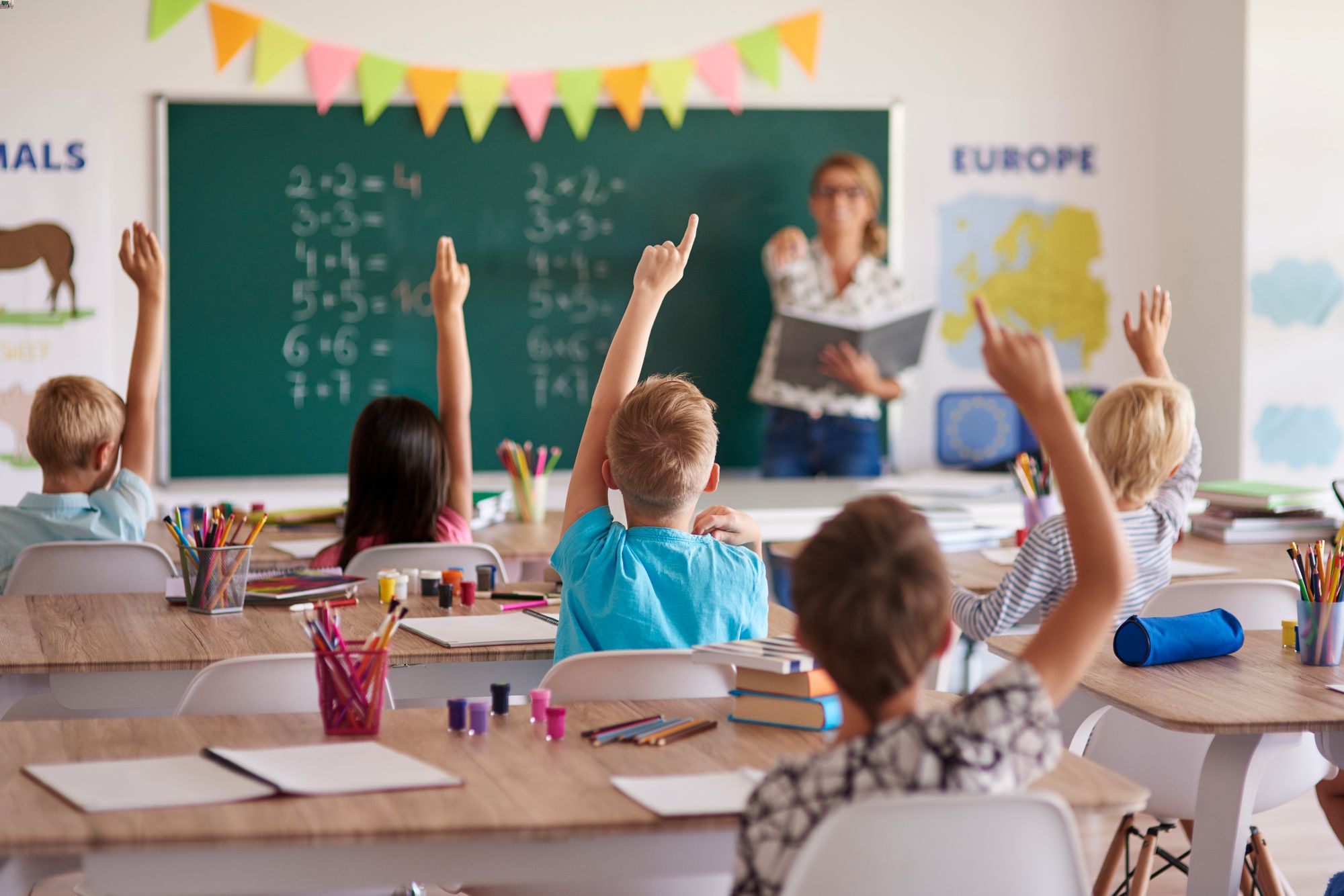
Repsol Foundation presents the Zinkers Awards to the best educational projects on energy transition and sustainability

- The Los Valles Public School in Laguna de Duero (Valladolid) and the La Ribera Center in Cascante (Navarra) were the winners of the 3rd edition of the Zinkers Awards, in Primary and Secondary schools respectively, receiving a prize of 15,000 euros to develop an educational innovation project at their schools.
- For the third year running, the Zinkers Awards recognize the best initiatives from schools across Spain in terms of energy transition, climate change, and sustainability.
- Antonio Brufau, Repsol chairman, presented the Zinkers Awards to the winners of this edition, at a ceremony held in Madrid.
- The ceremony included Clara Sanz, general secretary of Vocational Training of the Ministry of Education, Vocational Training, and Sports; María del Ángel Muñoz, general director of Educational Planning and Management of the Ministry of Education, Vocational Training, and Sports; Santiago García, general secretary of the Spanish Confederation of Schools (CECE); Carmen Muñoz, executive managing director of People and Organization at Repsol; as well as a number of representatives from the Education Departments of the Autonomous Communities.
- Antonio Brufau highlighted the role that education plays in the energy transition and pointed out “the importance of awakening students' critical spirit so they can become the professionals to take on this transition. We are achieving our goal: to help young people understand what energy means to the planet and how to make good use of it."
Yesterday, the Repsol Foundation announced the two winning schools of the 3rd edition of the Zinkers Awards: the Los Valles Public School in Laguna de Duero (Valladolid) and the La Ribera Center in Cascante (Navarra), in the Primary and Secondary school categories, respectively, during the Zinkers ceremony that took place at the Callao Cinemas in Madrid.
These two schools will receive a prize of 15,000 euros each to develop educational innovation projects, as well as for a fun and educational activity for their students related to science and sustainability.
During the ceremony, awards were also presented to the winning schools of this 3rd edition by Autonomous Community, who received 2,500 euros each to carry out an educational innovation project and an activity with the winning students.
The opening of the event was attended by Repsol chairman, Antonio Brufau, who highlighted the role that education plays in the energy transition. Brufau pointed out that “we're at the starting point of the solution, university, industry, and technology will follow. I would like to congratulate the 34 schools that have been recognized as the best and the two outright winners, who are training young people so they can provide solutions for the planet when they are older."
During the event, a debate table was held on “The new Law on Vocational Training and the challenge of training future professionals in ecological transition” with Clara Sanz, general secretary of Vocational Training; Santiago García, general secretary of the Spanish Confederation of Schools (CECE); and Carmen Muñoz, executive managing director of People and Organization at Repsol, who highlighted that “Dual VT is key to training future professionals in the field of the energy transition, as it provides the necessary technical skills, up-to-date knowledge, and practical experience in a context that's constantly evolving. For us, the success of this program favors the employability of younger people, provides companies with the right talent, and contributes to the progress of industry and, in turn, of society."
Juan Núñez, expert in education, pedagogy, and active methodologies and chairman of the Zinkers Awards Jury, took part in the event with the presentation “Values and aptitudes in the student's exit profile to achieve professionals and citizens committed to the energy transition.”
In a second round table, moderated by Juan Núñez, there was a debate on “Talent and knowledge: the future leaders of the ecological transition” with the winning students of the first University Challenge on energy transition, organized by the Repsol Foundation during the current academic year.
The general director of Educational Planning and Management of the Ministry of Education, Vocational Training, and Sports, María del Ángel Muñoz, brought the event to a close by highlighting that “no sector will be able to advance in this environmental transformation without trained professionals. "We've incorporated digitalization, research, and technology to turn each student into the best possible professional so that Vocational Training is the door, with a capital "D", to access employment."
The winning projects
Susana Contreras and her 3rd grade students from Los Valles Public School in Laguna de Duero (Valladolid) presented the winning project. The students and teachers let everyone know about all the activities they carried out. This included sending several letters to the city council, associations, and local organizations, raising awareness about the importance of applying measures to reduce environmental impact. They also researched the consequences of climate change in Castilla y León and analyzed the ecosystems of Laguna de Duero and prepared a 10-step guide to conserve them.
Susana Contreras said in her speech at the Zinkers ceremony that “this award is a huge recognition for the efforts of my children and group of colleagues who have given their all. There's a lot of work, but when you see the children really enjoying themselves and they get involved you think: it was all worth it.”
Carmen Abián and her 1st year ESO students from the La Ribera Center in Cascante (Navarra) got all the students and teachers at their school involved in the project. The initiative consisted of carrying out different activities to raise awareness about good practices for reducing emissions among various groups and organizations, such as the Red Cross Respite Classroom, the Network of Sustainable Schools of Navarra, and the Nuestra Señora de la Esperanza Additional Needs Education Center in Segovia, who they collaborate closely with.
The students made five posters using ecological paints displaying information and commitments such as: reducing emissions through the efficient use of transportation; minimizing the energy consumption of lighting, machinery, and thermostats or taking part in research on the consequences of climate change such as the tiger mosquito; or reusing materials by recycling waste such as recovering wood for chicken coops.
For Carmen Abián, “This project was won by the students who are the real stars. The initiative brought together a wide array of people who have each offered different skills to the initiative. As teachers, we have to feel extremely lucky as we have the privilege of working with the citizens of the future.”



